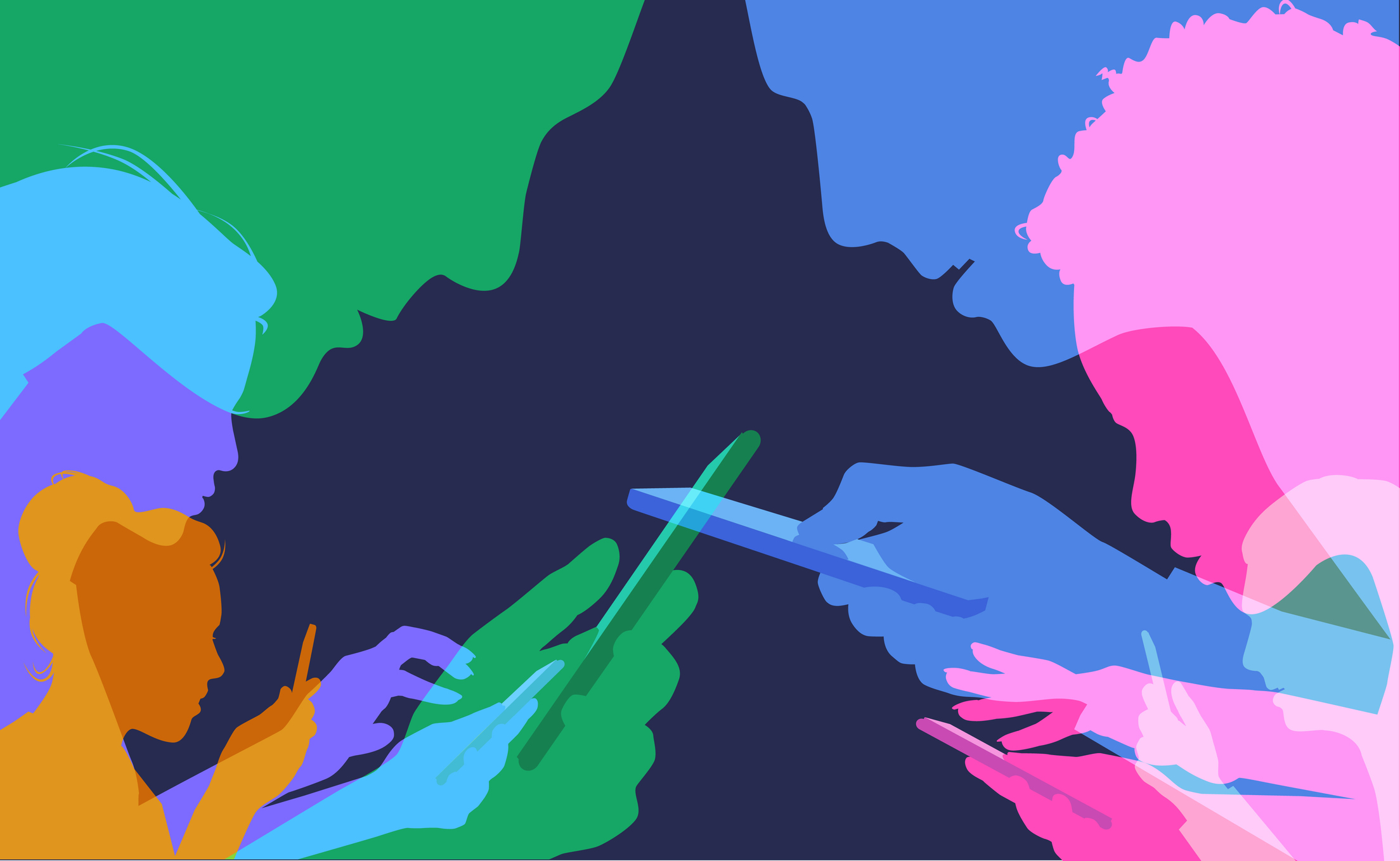Online fraud, hate speech, discrimination and other divisive online risks are on the rise globally, according to results of a new Microsoft study. We’re releasing these findings in conjunction with World Kindness Day in an effort to turn that tide and encourage safer, more empathetic and tolerant online interactions among all people.
Some 31% of respondents in 32 countries1 say they’ve been exposed to hoaxes, scams and fraud online, up two percentage points from last year, and up three percentage points since the fraud risk was first included in this study in 2017. Meanwhile, one in five respondents (20%) say they’ve been the target of hate speech online, and 15% say they’ve experienced discrimination. These latter two risks are up four and five percentage points, respectively, since the survey began in 2016. All three risks are at their highest levels on record for this research.
Strangers and people whom respondents say they know online only continue to be the primary sources of digital risk – a theme that has prevailed since 2016. In fact, anonymous bullying-type behaviors jumped in this latest poll. Among those respondents who said they had been subjected to bullying, harassment or mean and cruel treatment online – 33%, 47% and 37%, respectively – said those behaviors were exhibited by strangers. Still, risks from those identified as “friends” have been inching steadily higher, as well. This year, 22% of respondents said risks were perpetrated by friends, compared to 13% four years ago when 14 countries were included in the research.
The findings are from Microsoft’s latest research into aspects of digital civility – encouraging safer, healthier and more respectful online interactions. The study, Civility, Safety and Interaction Online – 2020, surveyed teens ages 13-17 and adults ages 18-74 about their exposure to 212 different online risks. This latest research builds on similar studies undertaken each year since 2016. Previous years’ projects polled the same demographics in 14, 22, 23, and 25 countries, respectively. In total, 16,051 individuals participated in this latest installment, and we’ve polled more than 58,000 people over the last five years. Complete results will be made available in conjunction with international Safer Internet Day on February 9.
At that time, we’ll also release the latest Microsoft Digital Civility Index, a gauge that looks at the state of online civility in each individual geography, as well as in all 32 combined. The index, which stood at 70 last year, is an indication of the perceived level of civility in that country. The index works like a golf score: A lower reading equates to a higher level of perceived civility among respondents in that country. The 2019 worldwide Digital Civility Index reading was the highest on record thus far for this research and reflects responses from survey participants in 25 countries. (Read more about the 2019 worldwide index and survey here.)
Take the Digital Civility Challenge
As done since the start of this research, we’re encouraging people around the world to take our Digital Civility Challenge and pledge to live by four basic tenets for life online:
- Live the Golden Rule and treat others as you would want to be treated
- Respect differences of all types, including those of thought and opinion
- Pause before replying to something you may disagree with, and
- If it’s safe and prudent to do so, stand up for yourself and others online who may be the target of abuse or cruel treatment.
Results from the latest survey show both teens and adults appear to be championing these actions. Indeed, 58% of adults and 57% of teens report having taken at least one challenge action in response to online risks. “Standing up for myself” was the most common challenge action this year, with 34% of respondents saying they defended themselves online. “Pausing before replying” was noted by 25% of those surveyed.
The Digital Civility Challenge isn’t meant to be a panacea, but rather a starting place to encourage good digital citizenship and active, engaged online communities. We’re not trying to thwart online debate or disagreement. On the contrary, we encourage it, while guarding against heated discussions that quickly devolve to name-calling and abuse.
So, step up to the Digital Civility Challenge this World Kindness Day, and tell us you’ve done so on social media using the hashtag #Im4digitalcivility. To learn more about online safety issues and digital civility generally, visit our website and webpage.
1 Geographies polled in 2020: Argentina, Australia*, Belgium, Brazil, Canada, Chile, Colombia, Denmark*, France, Germany, Hungary, India, Indonesia*, Ireland, Italy, Malaysia, Mexico, Netherlands, Peru, Philippines*, Poland, Russia, Sweden*, Singapore, Spain*, South Africa, Taiwan*, Thailand*, Turkey, U.K., U.S., Vietnam. * Added (or re-added) to the study in 2020
2 The 21 risks span four broad categories: behavioral, sexual, reputational and personal/intrusive. Specifically:
Reputational – “Doxing” and damage to personal or professional reputations
Behavioral – Being treated meanly; experiencing trolling, online harassment or bullying; encountering hate speech and microaggressions
Sexual – Sending or receiving unwanted sexting messages and making sexual solicitations; receiving unwanted sexual attention and being a victim of sextortion or non-consensual intimate images (aka “revenge porn”), and
Personal/intrusive – Being the target of unwanted contact, experiencing discrimination, swatting, misogyny, exposure to extremist content/recruiting, or falling victim to hoaxes, scams, or fraud

